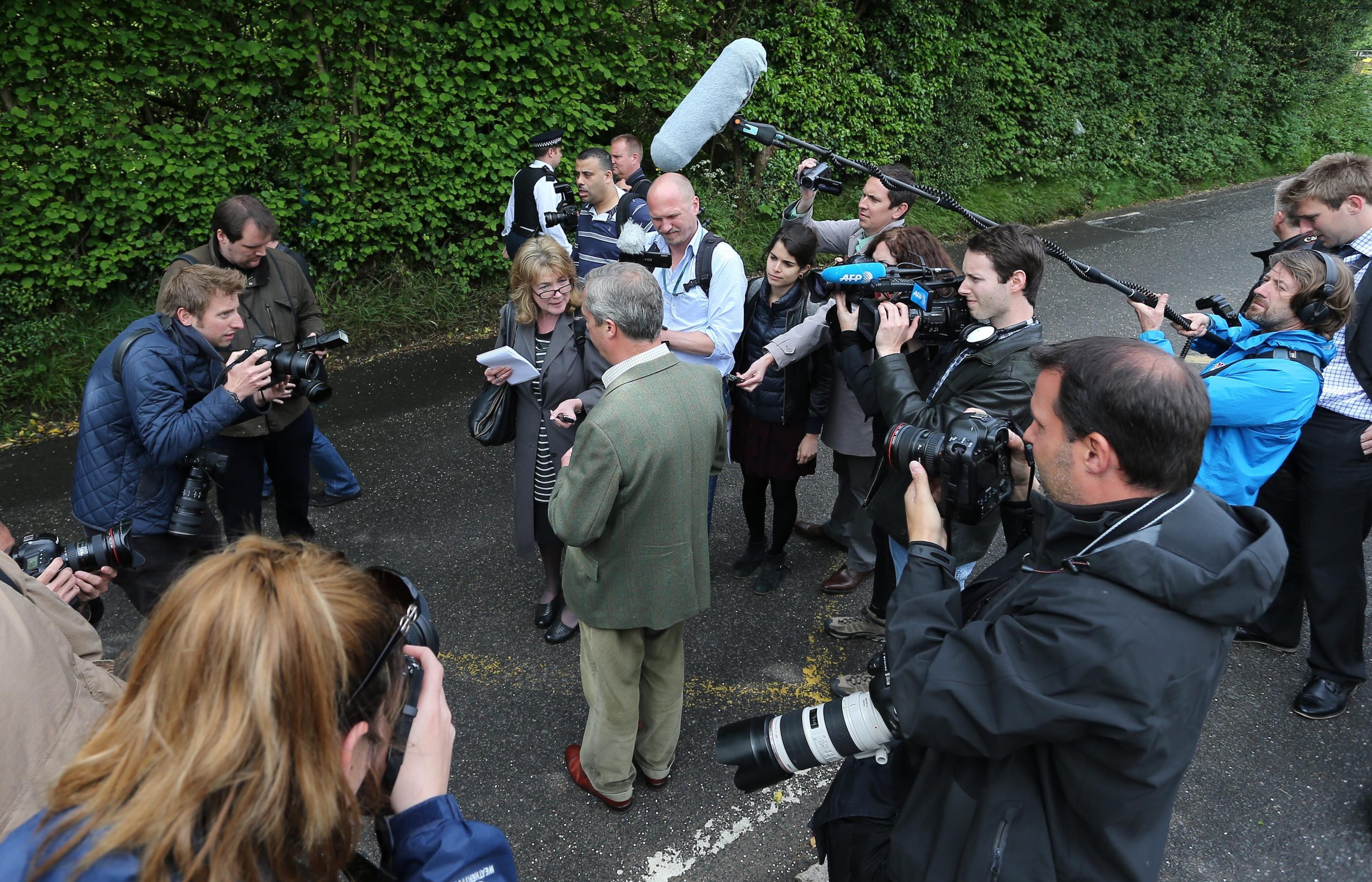
England’s contempt of court laws have long been toothless, but the Internet and the smartphone have made it clear they are not fit for purpose, as demonstrated in the current “monstering” of murder suspect Chris Jefferies, says Brian Cathcart
It is an old problem, and an old argument: when a crime makes front-page headlines in modern Britain, the monstering of suspects and potential suspects in the tabloids is a matter of routine. Chris Jefferies in Bristol is only the latest — after the likes of Colin Stagg, Barry George, Karen Matthews, Robert Murat, the McCanns and Steve Wright — to be hysterically presented as a likely perpetrator in the press long before legal process had run its course.
Sometimes, as in the case of Jefferies, the attorney general publicly draws editors’ attention to the Contempt of Court Act of 1981, but it never makes any difference. They know and he knows that that law, supposedly intended to protect juries from improper influence, contains a loophole big enough to render it meaningless.
To convict a paper of contempt in such a case the Crown would have to prove there had been a “substantial” risk of “serious” prejudice. This, successive attorneys general have decided, is both unmeasurable and unprovable, which means it is also unenforceable. It follows that reporting of suspects around the time of arrest is unfettered.
Several defences are normally offered for this miserable state of affairs. One is that jurors don’t tend to remember what they have read in the press at the time of arrest or charging. Another is that juries heed the instructions they receive from judges to put such matters out of their minds. And a third is that there is no hard evidence juries are influenced by press coverage.
The feebleness of all this is demonstrated by a simple question: if you were a defence barrister going into a trial, would you be more confident if your client’s name had never appeared in the press, or if he had received the full-on sick-weirdo-loner treatment accorded to, say, Barry George? I followed the George case from beginning to end, and for what it is worth there is no doubt in my mind that prejudicial press reporting was one of the reasons he was wrongly convicted of the murder of Jill Dando.
One reason nothing has been done about this is that the status quo, ugly as it is, favours prosecutors and with them the state and the police. Imagine it was the other way around, and that pre-trial reporting in some way tended to make convictions in high-profile cases harder to achieve, rather than easier: how long do you think the 1981 Act would remain as it is?
But this is, as I mentioned, an old argument, and events are conspiring to make it an out-of-date one. Nothing said on either side of the contempt debate has much meaning when jurors have it in their power to research defendants and cases online from their phones at court or from their laptops and PCs at home in the evenings.
This means that they can access not only press reporting but blogs, tweets, Facebook pages and all sorts of data, public and sometimes otherwise. A defendant’s criminal record, or his opinions, or the opinions of others about him, may be available. The same applies to information about victims, and about witnesses, including expert witnesses.
Thanks to the internet, in fact, the whole idea of inadmissible evidence will be hopelessly compromised because, whatever is out there, jurors will be able to read it, just as they will be able to Google all that prejudicial press coverage from the time of arrest.
On this basis anyone convicted of a crime once (or even charged) will be more likely to be convicted a second time, whatever the evidence. Even prosecutors and attorneys general know that: it’s why previous convictions are not normally disclosed in court today. So, more innocent people will be convicted and more guilty people will go unpunished.
If you are a judge or an attorney general you would now point out that jurors are warned in the strongest terms not to research cases online, and indeed that they are prosecuted if caught doing so. But this is no more enforceable than the present contempt law: it is simply not possible to deny jurors access to the internet for the duration of a trial, and once they are online no force on Earth will prevent them, or at least many of them, from indulging their curiosity about the cases they are trying.
Again, the test is a simple question: if you were a defendant, would you trust the jury to obey the judge’s instruction not to Google your name? Of course you wouldn’t. How many of us would trust ourselves not to do it?
This problem is so big and so scary — it calls into question jury trial itself — that we may rest assured nothing will be done about it until the present system is utterly and publicly discredited. And in the meantime, when the tabloids pick a sensational case, they will continue to abuse suspects or potential suspects to their hearts’ content.
Brian Cathcart is professor of journalism at Kingston University.
Follow him on Twitter: @briancathcart





